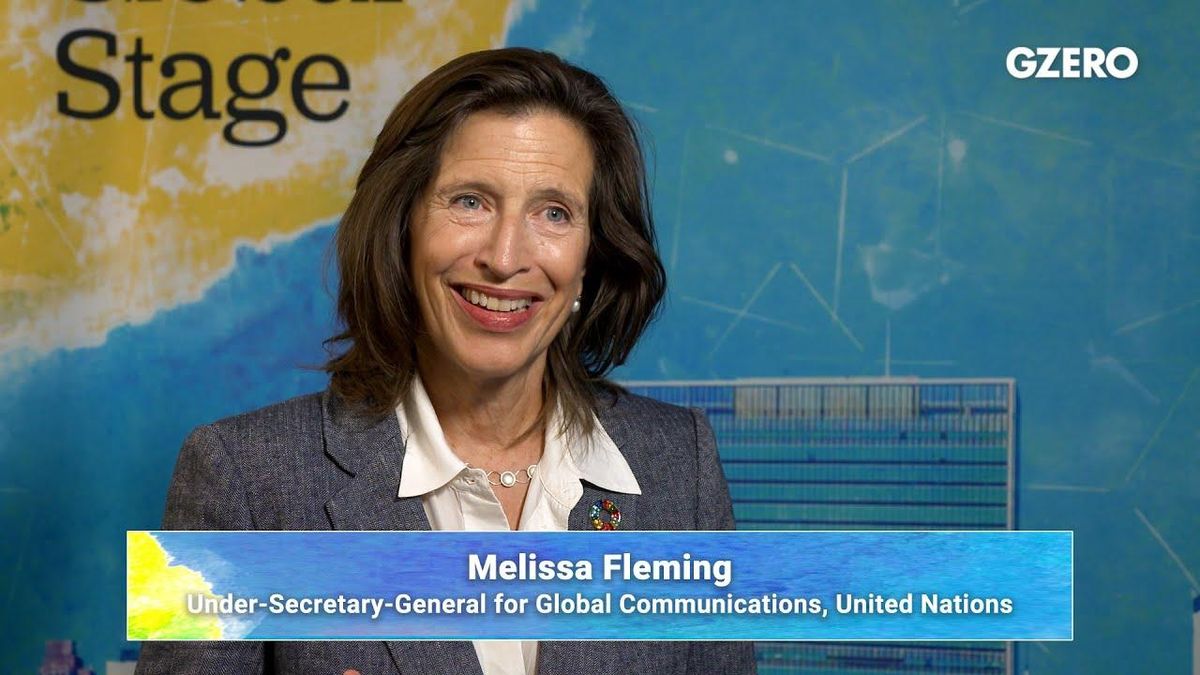“The UN is back,” said Melissa Fleming, the UN’s Under-Secretary-General for Global Communications. In an interview with GZERO Media on the sidelines of the 77th General Assembly, Fleming reflected on the return to in-person diplomacy after years of disruption caused by pandemic.
“There is this real feeling that the UN is the only place for global cooperation,” she said. “We cannot solve the world's intractable problems of climate change, of war, of refugees without multilateralism, and multilateralism is the UN. It is nations working together to solve problems.”
In the interview, Fleming also acknowledged that the collision of recent global crises had created uncertainty about the power of multilateralism. But she said recent diplomatic efforts lead by the UN, including the Black Sea grain initiative to help mitigate a growing food insecurity crisis, have brought renewed energy.
On Russia’s membership and role at the UN, Fleming said, “Russia's invasion of Ukraine has absolutely launched a discussion about how the Security Council works, how it is dysfunctional, especially when one permanent member of the Security Council is the invading country. So, it's obviously started a debate.”


















